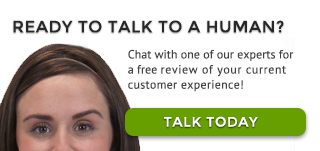 “The truth of the matter is, true differentiation – sustainable differentiation – is rarely a function of well-roundedness;” writes Harvard professor Youngme Moon, “it is typically a function of lopsidedness.” (Different: Escaping the Competitive Herd).
“The truth of the matter is, true differentiation – sustainable differentiation – is rarely a function of well-roundedness;” writes Harvard professor Youngme Moon, “it is typically a function of lopsidedness.” (Different: Escaping the Competitive Herd).
Youngme Moon illustrates this with stories about IKEA – a throwaway brand in a traditionally permanent industry, Dove – using pictures of average women in a traditionally photoshopped, airbrushed industry, and Google – creating a stripped down search interface in an industry cramming search pages with every button and pop-up imaginable. And while we all understand intuitively the answer to the question “Why do these brands work?,” it becomes much more difficult to answer this question about ourselves.
The following are five ways your customer feedback should be helping you to answer the question: What makes my company great?
1. Know why your clients love working with you.
At PeopleMetrics we use our own Voice of the Customer technology to collect client feedback after the completion of every project or at key milestones throughout an ongoing relationship. Recently our CEO sat down with the data from our own surveys over the past few years to evaluate the open-ended comments related to what people love about working with us. He quickly identified the two things that clients love about us – we think (we know their business, are subject matter experts, provide actionable insights, and anticipate potential problem areas) and we care (we are exceptionally responsive, flexible and easy to work with, go above and beyond, and focus on quality). If you are collecting feedback from your customers, you can go through the same exercise to uncover the core of what makes you special to the customers who keep coming back.
2. Know who your best customers are.
When companies first begin collecting customer feedback the knee-jerk reaction is to focus on fixing the negative comments. And while this is important, it shouldn’t come at the expense of focusing on your best customers. We refer to these people as your Passionate Promoters. They want to work with you, they recommend you, they gladly spend their money with you. Keep these people happy, and when you mess-up, fix it fast.
3. Know who your best employees are.
Behind every loyal customer are exceptional employees or, as we call them, Brand Ambassadors. Do you know which of your employees are creating your best customers? And are you actively learning from them to help coach and enhance the skills of your other employees?
4. Find out what your best clients want more of.
We find in every industry that Fully Engaged customers and clients want to spend more money with a business that engages them. Our Voice of Customer solution includes a space for respondents to indicate if there is something further they would like from the business. Many times clients aren’t aware of all the services you offer and this provides an opportunity for you to educate them about your full suite of offerings and a space for them to tell you about a need you may not, previously, have unearthed. One of our clients uncovered a $100,000 opportunity by asking this question in their customer survey.
5. Track the drivers of your success.
When measuring Customer Engagement it is easy to obsess over the “master metric” the one number that indicates organizational success. But doing so can detract from focusing on the unique elements that drive engagement for your customers. Our Most Engaged Customers Study outlines six drivers of Customer Engagement and then highlights sector-level differences. We also do this on a company basis and help our clients track in real-time how they are delivering on these items. Doing so ensures that they focus, not on keeping up with the competitive herd, but rather that they are consistently delivering the exceptional experiences that their clients depend on them for.
Creating truly engaging customer experiences will require that you get a bit lopsided. It also means that you, your employees, your clients, and your prospects will know exactly what it is that makes your company great.
“Differentiation is a way of thinking. It’s a mindset. It’s a commitment. A commitment to engage with people - not in a manner in which they are merely unaccustomed, but in a manner that they will value, respect, and yes, perhaps even celebrate.” – Youngme Moon
~Janessa Lantz
Photo courtesy of: goldsaint






%20(1).png)